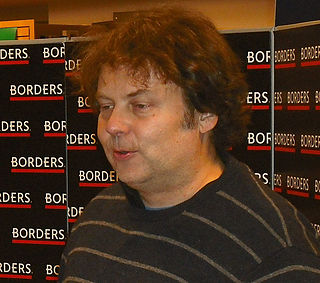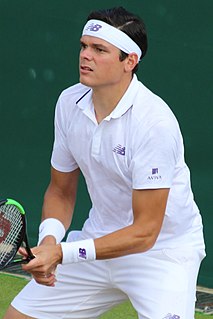A Quote by James Arthur
I do like Canadian poetry. Christian Bök, Anne Carson, Carmine Starnino, and Don McKay are a few of the Canadian poets whose work has been important to me. But I'm not sure that I do see poetry as a world apart. Some of my metaphors are based in the fantastic, but I try to be true to life as I understand it. That understanding is affected by my Canadianness, my Americanness, my whiteness, my gender, my age, my education, my experience...everything about me affects my view of reality. But I try to wrestle against those partialities, not embrace them.
Quote Topics
About
Affected
Affects
Against
Age
Anne
Apart
Based
Be True
Been
Canadian
Christian
Education
Embrace
Everything
Experience
Fantastic
Few
Gender
Important
Life
Like
Me
Metaphors
Not Sure
Poetry
Poets
Reality
See
Some
Sure
Them
Those
True
Try
Understand
Understanding
View
Whiteness
Whose
Work
World
Wrestle
Related Quotes
That’s what i love about poetry. The more abstract, the better. The stuff were your not sure what the poets talking about. You may have an idea, but you cant be sure. Not a hundred percent. Each word, specifically chosen, could have a million different meanings. Is it a stand-in ?a symbol for another idea? Does it fit into a larger, more hidden, metaphor? ...I hated poetry until someone showed me how to appreciate it. He told me to see poetry as a puzzle. Its up to the reader to decipher the code, or the words, based on everything they know about life and emotions.
The Divine Comedy is a political poem and when you say poetry is not about - he's always quoted out of context, that "poetry makes nothing happen," that doesn't mean you shrug your shoulders and don't try to make anything happen. And Dante felt that poetry was engaged, there was a point of view; it's not my point of view, it's orthodox medieval Christianity, and I have my troubles with that. He didn't feel that you could just rule out so important a section of life - we care about these things, and it's out of caring about them that we write poetry.
I don't know that I had a sense that there was such a thing as "the poetry world" in the 1960s and early 70s. Maybe poets did, but for me as an onlooker and reader of poetry, poetry felt like it was part of a larger literary world. I mean, even the phrase "the poetry world" reflects a sort of balkanization of American literary and artistic life that has to some extent happened since then.
Poetry begins in trivial metaphors, pretty metaphors, "grace" metaphors, and goes on to the profoundest thinking that we have. Poetry provides the one permissible way of saying one thing and meaning another. People say, "Why don’t you say what you mean?" We never do that, do we, being all of us too much poets. We like to talk in parables and in hints and in indirections - whether from diffidence or some other instinct.
I have no idea, actually, where I fit in, in terms of poetry camps. At AWP conferences, I have been on panels about humor, collaboration, visual poetry, confessional poetry, gender, and the body, as well as tributes to Edward Field and Albert Goldbarth. I felt at home on all of them - most poets straddle more than one school.
I'm not going to tell people how to write, but we do have a skill set, and the more we put ourselves out into the world as poets, as a sort of poet of the tribe, as representatives of metaphor, and try to claim space for metaphor in the inner life, that's going to be important and be helpful to poetry and bring a tension for poets writing about whatever they choose.
I didn't ever consider poetry the province exclusively of English and American literature and I discovered a great amount in reading Polish poetry and other Eastern European poetry and reading Russian poetry and reading Latin American and Spanish poetry and I've always found models in those other poetries of poets who could help me on my path.
Poetry, even when apparently most fantastic, is always a revolt against artifice, a revolt, in a sense, against actuality. It speaks of what seems fantastic and unreal to those who have lost the simple intuitions which are the test of reality; and, as it is often found at war with its age, so it makes no account of history, which is fabled by the daughters of memory.
It's important to me to defend the Canadian colours. And I don't just do it in tennis. I might now follow hockey as much as the average Canadian, but I support several Canadian teams. I'm a big fan of the Toronto Raptors. On top of that, I love my country, simple as that. It's a magnificent country; the people are really welcoming.



































